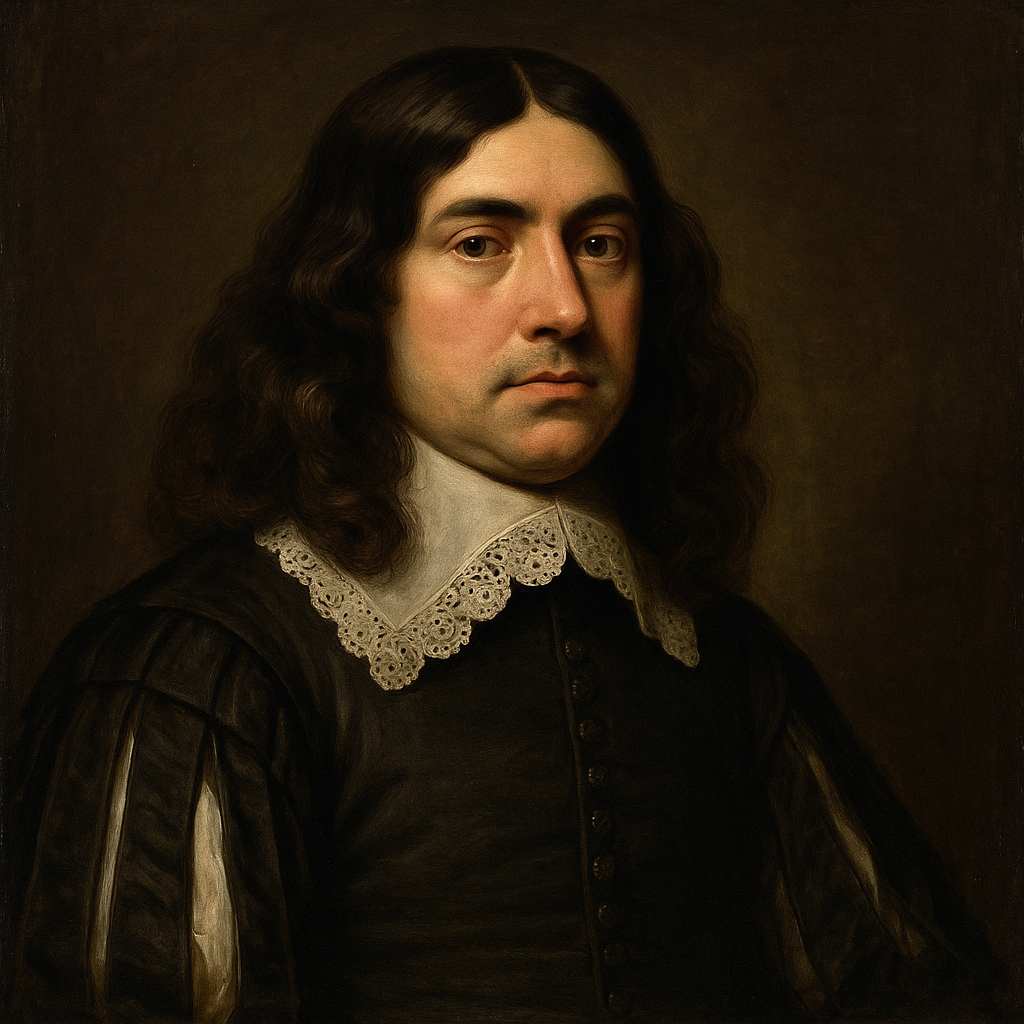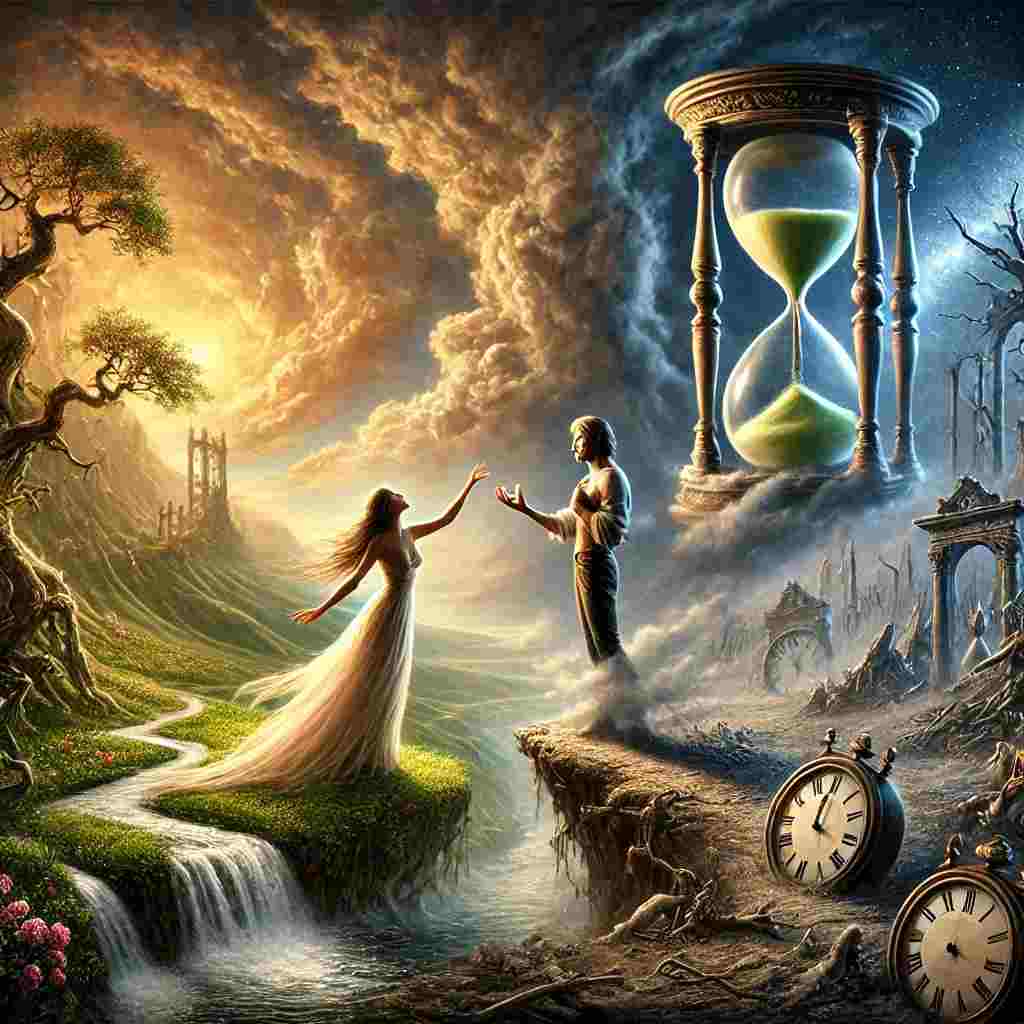5 Poems by Andrew Marvell
1621 - 1678
Andrew Marvell Biography
Andrew Marvell was a significant English metaphysical poet, satirist, and politician of the 17th century. Born on March 31, 1621, in Winestead-in-Holderness, Yorkshire, Marvell lived during one of the most tumultuous periods in English history, and his work reflects the complex political and social landscape of his time.
Marvell was born into a clerical family; his father was a Church of England clergyman. He received his early education at Hull Grammar School before proceeding to Trinity College, Cambridge, in 1633. At Cambridge, he excelled in his studies, earning his B.A. in 1639 and likely staying on for a master's degree, although there's no record of him completing it.
After his time at Cambridge, Marvell traveled extensively in Europe for several years, visiting countries including France, Italy, Holland, and Spain. These travels broadened his horizons and influenced his later work, particularly in terms of his political views and his facility with languages.
Upon returning to England in the early 1650s, Marvell became tutor to the daughter of Lord Fairfax, a prominent Parliamentarian general. It was during this period that he wrote some of his most famous lyrics, including "To His Coy Mistress" and "The Garden." These poems exemplify the metaphysical style, characterized by complex conceits, intellectual depth, and a blend of passion and reason.
In 1653, Marvell was recommended by John Milton for a position in Oliver Cromwell's government, marking the beginning of his political career. He served as Latin secretary to Cromwell's Council of State, a role he shared with Milton. This position allowed Marvell to observe closely the workings of government during the Interregnum period.
Despite his association with the Cromwellian regime, Marvell managed to navigate the treacherous waters of the Restoration period after 1660. He was elected as member of Parliament for Hull in 1659 and continued to serve in this capacity until his death. His political writings from this period, including "The Rehearsal Transpros'd" (1672-73) and "An Account of the Growth of Popery and Arbitrary Government in England" (1677), showcase his sharp wit and political acumen.
Marvell's poetry is notable for its intellectual complexity, its vivid imagery, and its exploration of themes such as time, nature, and love. "To His Coy Mistress," perhaps his most famous poem, is a carpe diem poem that uses witty argumentation and striking imagery to urge the speaker's mistress to yield to his advances. The poem's opening lines, "Had we but world enough and time, / This coyness, lady, were no crime," are among the most quoted in English poetry.
Another of Marvell's masterpieces, "The Garden," reflects on the pleasures of solitude and contemplation in nature. The poem's intricate imagery and philosophical depth exemplify the metaphysical style at its best.
Marvell's work often defies easy categorization. While he is generally considered a metaphysical poet, his oeuvre includes pastoral poetry, satires, and political verse. His ability to blend different styles and address a wide range of subjects sets him apart from many of his contemporaries.
Despite his significant literary output, most of Marvell's poetry was not published during his lifetime. It was only after his death on August 16, 1678, that his poems were collected and published. This posthumous publication has led to ongoing debates about the chronology and interpretation of his work.
Marvell's reputation as a poet has grown significantly since his death. While he was respected in his own time primarily as a political figure and satirist, later generations have come to appreciate the depth, complexity, and technical skill of his poetry. Today, he is considered one of the most important poets of the 17th century, alongside figures such as John Donne and George Herbert.
Andrew Marvell's life and work offer a fascinating window into the literary, political, and philosophical currents of 17th-century England. His ability to balance public service with poetic creation, to navigate complex political situations, and to produce work of lasting literary value ensures his place as a key figure in English literature and history.
This text was generated by AI and is for reference only. Learn more
Username Information
No username is open
Everything is free to use, but donations are always appreciated.
Quick Links
© 2024-2025 R.I.Chalmers (V2Melody).

All music on this site by R.I.Chalmers (V2Melody) is licensed under a Creative Commons Attribution-NonCommercial 4.0 International License.
Attribution Requirement:
When using this music, you must give appropriate credit by including the following statement (or equivalent) wherever the music is used or credited:
"Music by R.I.Chalmers (V2Melody) – https://v2melody.com"
Support My Work:
If you enjoy this music and would like to support future creations, your thanks are always welcome but never required.
Thanks!






